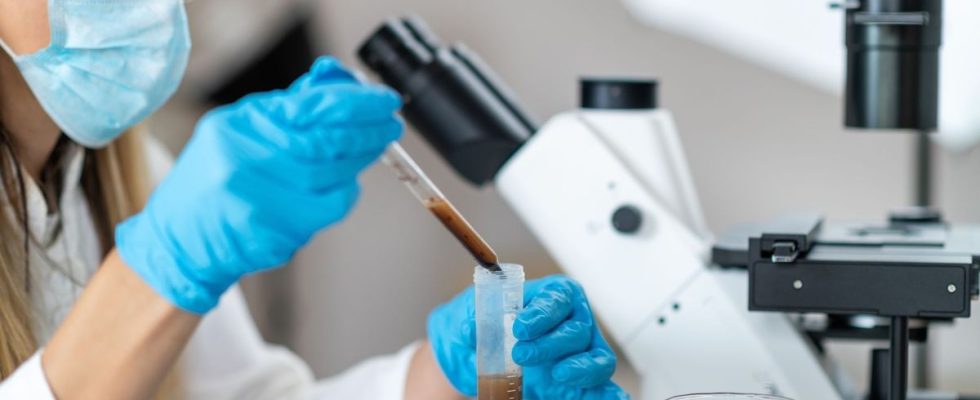Published on
Updated
Reading 2 min.
in collaboration with
Ivan Pourmir (medical oncologist)
In Lyon, a biotech laboratory is working on an innovative treatment capable of increasing the survival rate of people affected by blood cancer. Its flagship ingredient? Human feces! Explanations.
Can human stools save our lives, or at least prolong them? This is the starting point for Maat Pharma, a Lyon biotech laboratory which intends to prolong the lives of people affected by “graft versus host disease” (or GVHD), an autoimmune disease which sometimes occurs after blood cancer. “When the patient has undergone very intensive chemotherapy, it is necessary to replenish his immune system with stem cells white blood cells from other people” explains Dr. Ivan Pourmir, oncology researcher. But the body may not accept this ordeal.
A survival rate rising from 20% to 60% announces the laboratory
Maat013, a drug made from human feces by the laboratory, could well overcome this consequence. Injected rectally, as with an enema, this drug is currently being developed to restore the microbiota of patients which would have been destroyed or greatly damaged by chemotherapies and antibiotics.
The procedure is nevertheless complex: since 2018, the laboratory has had around ten “collections” made in Nantes, and around fifteen donors for each of them who must pass a series of tests to avoid any infectious germs. The collection, which extends over a period of 8 weeks, with daily donations must also undergo special packaging and transport under close surveillance to the laboratory. The stools, from four different donations, are mixed to produce the active substance of the drug.
But despite this difficult undertaking, the results are there, for Maat Pharma: “The first results, recorded by the laboratory, are encouraging: under treatment, the survival rate is 60% instead of 20%. reveals Carole Schwintner, director of technological developments within the laboratory in 20 minutes. Two hundred patients in hospitals have already benefited from it. If it keeps its promises, the Maat013 could be released on the market in 2026.
Reconstructing the microbiota, a hopeful option
Are human excrement, already used in other pathologies, a treatment of the future to save people recovering from blood cancer? We asked the question to Dr Ivan Pourmir, member of our committee of experts and according to him, the method is not uninteresting.
“Currently patients suffering from GVHD receive immunosuppressive treatments with serious side effects and sometimes insufficient. A new treatment option is to reconstitute a balanced microbiota by providing bacteria isolated from the stools of healthy donors, in the form of capsules or enemas.
However, it remains difficult to obtain the “right” formula to this day. :
He There are several obstacles, “notably the difficulty in finding donors but also in obtaining a reproducible composition despite the diversity of donors”.
The announced results of Maat-013 are nevertheless promising even if we will have to wait for a more detailed publication to get a better idea. “A limitation is also that these are non-comparative clinical trials for this product, but this can be understood in the absence of an alternative in very serious patients. tempers our expert.
Although it must be remembered, this method is part of a medical and regulated protocol, and is not to be tried at home, as an English media outlet pointed out last month.
